Ali in Wonderland
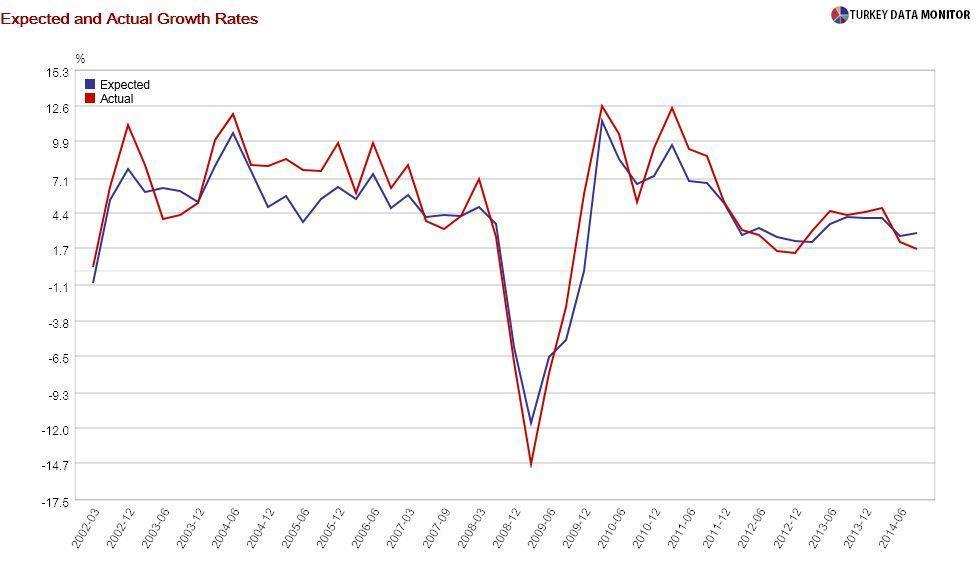 To tell you the truth, I did not lose any sleep over annual growth in the third quarter, which came in much lower than expected (1.7 versus 2.9 percent) according to official statistics released on Dec. 10.
To tell you the truth, I did not lose any sleep over annual growth in the third quarter, which came in much lower than expected (1.7 versus 2.9 percent) according to official statistics released on Dec. 10.
For one thing, the economists surveyed by business channel CNBC-e seem to be treading carefully with their growth forecasts: They tend to overestimate growth during slowdowns and underestimate it during recoveries. Moreover, these data are outdated. To get a more current picture, we need to look at leading indicators of growth.
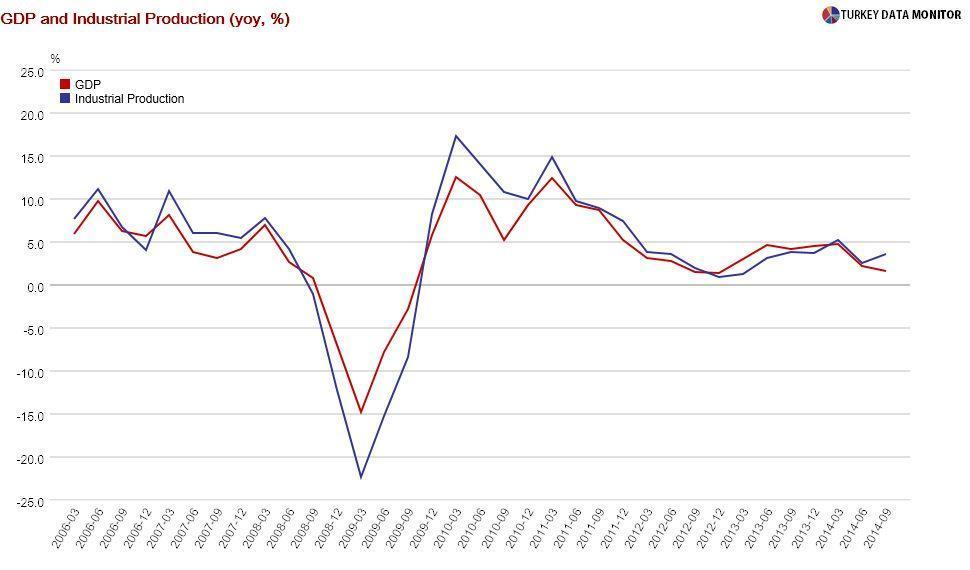
It is true that industrial production, which usually tracks growth pretty well, also came in lower than expected (4.4 versus 5.5 percent) according to official statistics released on Dec. 8. But as I explained in my Dec. 5 column, more recent data are hinting at a slight pick-up in growth in the last quarter and next year.
Moreover, even though Governor Erdem Başçı indicated otherwise during his presentation of the monetary and exchange rate policy for 2015 on Dec. 10, I believe the Central Bank, under pressure from President Recep Tayyip Erdoğan to lower rates, will yield once inflation plunges thanks to base-year effects – provided there isn’t too much pressure on the Turkish Lira.
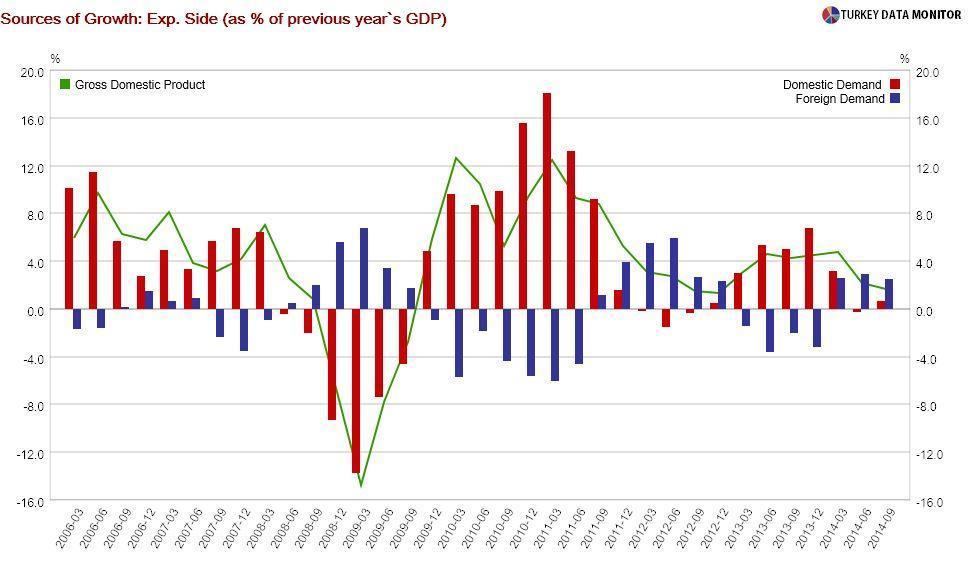
I am actually worried about growth, but for different reasons. For one thing, the economic rebalancing underlined by economy tsar Ali Babacan in his short press release on the growth figures seems to have come to a halt. Leading indicators hint that consumption is picking up and exports are stalling, and so growth will be dependent on external financing next year as well.
Prospects for longer-term growth are even more worrying: Babacan, following on Başçı’s lead, blamed the low growth figure on “the decrease in agricultural production because of unfavorable weather conditions,” but even without the drought, I doubt that annual growth would have been higher than 2.5 percent.
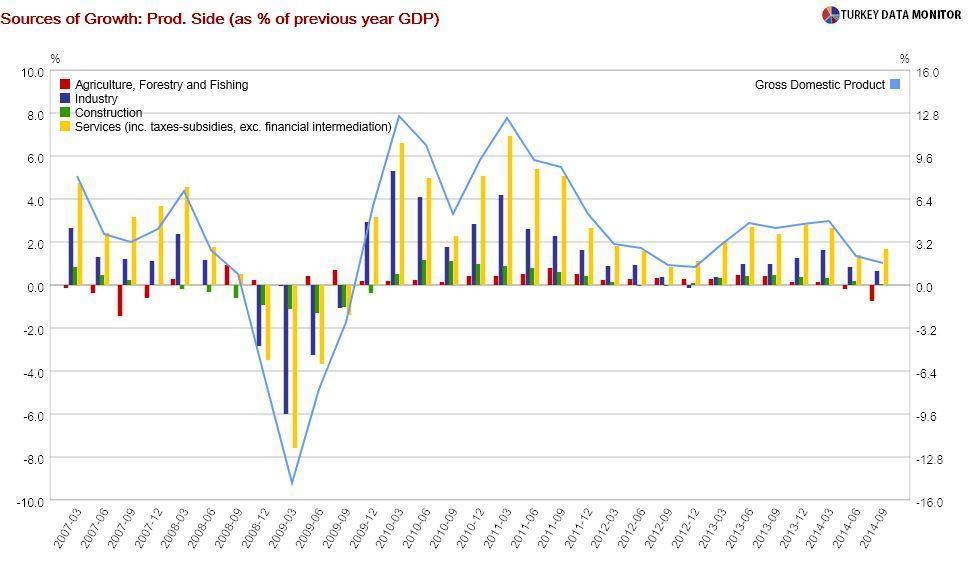
After all, as the IMF emphasized in their latest report on the Turkish economy, it would be very difficult for Turkey to grow more than 3.5 percent a year without ample capital flows. The GDP has actually been hovering around $800 billion for the last couple of years, hinting that the country is stuck in a middle income trap.
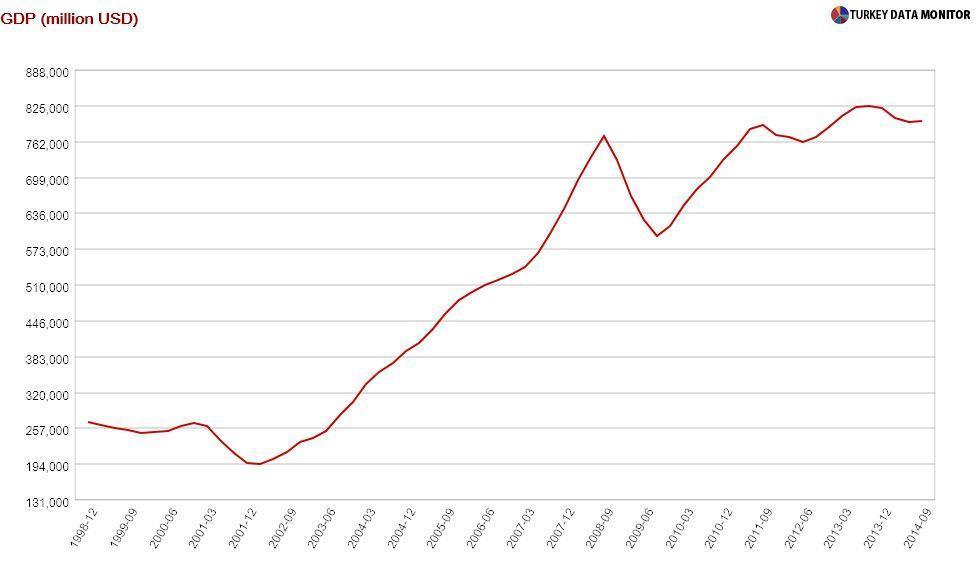
This growth rate would not be able to keep unemployment at bay, either. Babacan emphasized in the same press release that 1.3 million new jobs were created during the last year. Turkey’s growth has indeed been employment-generating as of late. Economists are not sure why, but it was not because of “active employment policies and the environment of trust and stability established by consistent, inclusive and sustainable macroeconomic policies,” as Babacan claimed.
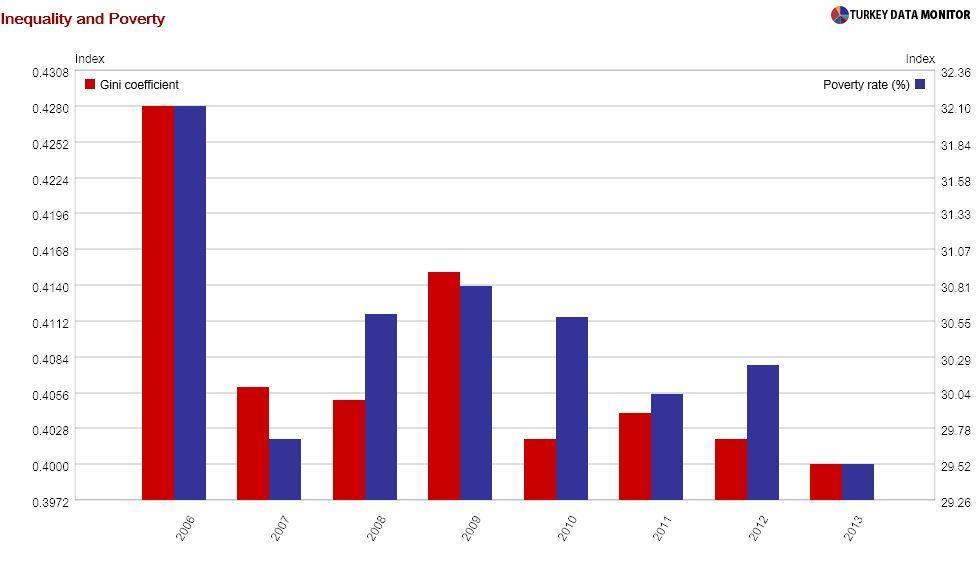
Macroeconomic policies have been anything but consistent and sustainable, as evidenced by the inability to change the growth model. Poverty and inequality have barely come down since 2007. As for the environment of trust and stability, I have two words for you: #RememberBerkin and fezlekes!
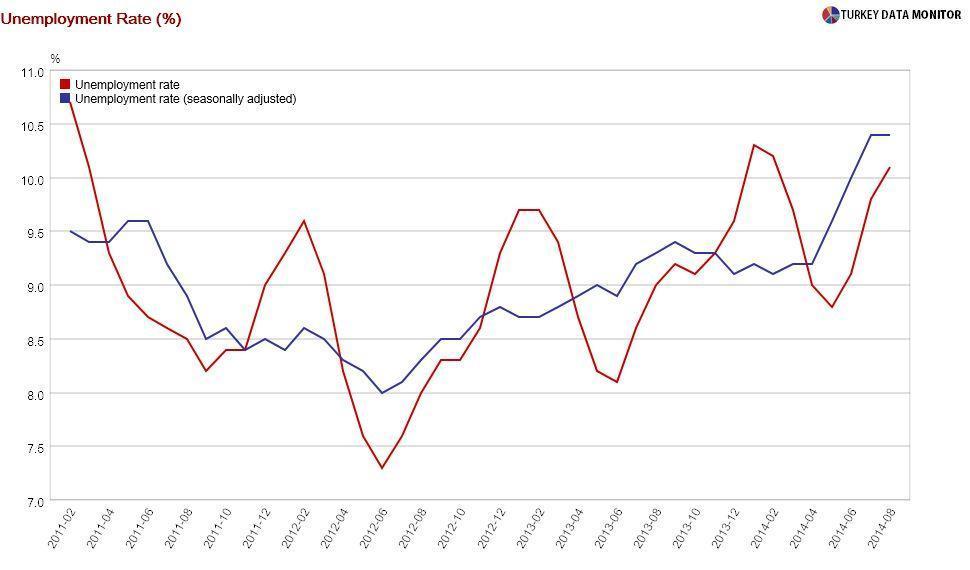
In any case, because of Turkey’s demographics, unemployment actually surged during this “exemplary” period. Just like her sister woke Alice up at the end of Lewis Carroll’s novel, someone needs to awaken Ali from his dream.










